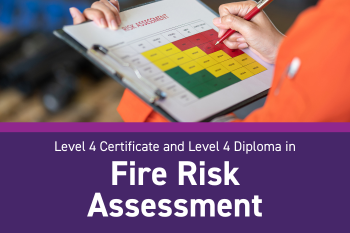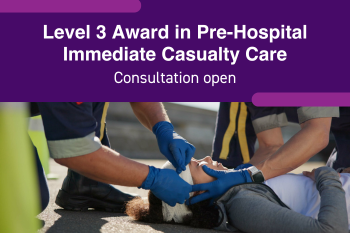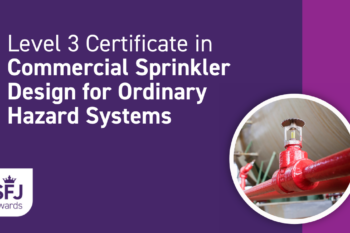With England and Wales’s police forces receiving over 890,000 crime reports about anti-social behaviour (ASB) during 2024, demand for anti-social behaviour and community safety officers is increasing across our communities. Supporting clear routes into this area of the criminal justice workforce is key to tackling ASB issues.
Jump to:
- Where is this occupation found?
- The day-to-day role
- The skills and personality traits required
- How to become an anti-social behaviour and community safety officer
- Resources and support
Where is this occupation found?
Anti-social behaviour and community safety officers can be found working in social housing, local authorities, and police forces.
- Social housing – Anti-social behaviour teams work in social housing to ensure safe and secure living environments for residents. Their responsibilities may include investigating reports of anti-social behaviour, supporting victims, and working with local authorities, police, and social services They also provide guidance to tenants, enforce tenancy agreements, and implement preventative measures.
- Local authorities – These teams are also found working in local authorities to maintain safe and secure communities. Their roles often include conducting patrols, engaging with residents, and promoting community cohesion to help reduce crime.
- Police forces – Collaborating with other public services, anti-social behaviour and community safety officers aim to prevent and address issues by conducting patrols, gathering intelligence, and engaging with residents to promote safer communities.
The day-to-day role
Anti-social behaviour and community safety officers handle a variety of tasks daily to maintain safe communities. Their responsibilities include:
- Investigating complaints of anti-social behaviour, such as noise disturbances, vandalism, and substance misuse.
- Supporting victims and witnesses, ensuring they receive appropriate guidance and protection.
- Collaborating with partner agencies, including police, social services, and housing providers, to address community concerns.
- Implementing preventative measures, such as mediation, restorative justice, and community engagement programmes.
- Enforcing legal actions, including issuing warnings, acceptable behaviour contracts, and pursuing injunctions or closure orders.
- Gathering evidence, which may involve witness statements, CCTV footage, and noise monitoring technology.
- Attending court proceedings when necessary to support legal cases against persistent offenders.
Their role is a mix of office-based work and community engagement, requiring strong communication and problem-solving skills.
The skills and personality traits required
People working in anti-social behaviour prevention require strong communication and interpersonal skills to ensure they can engage effectively with residents, victims, and perpetrators. They must be adept at conflict resolution and mediation, using diplomacy to de-escalate tense situations and foster positive community relationships.
Problem-solving and analytical abilities are also essential to the role in terms of assessing incidents, identifying patterns, and implementing preventative measures.
Also crucial to people in this line of work is a solid understanding of housing policies, crime prevention strategies, and legal frameworks. This will enable them to enforce regulations and support vulnerable individuals.
How to become an anti-social behaviour and community safety officer
Approved for delivery since July 2021, the Level 4 Anti-social Behaviour and Community Safety Officer apprenticeship standard offers a formal route into this role. The apprenticeship typically takes 24 months to complete (not including the End-Point Assessment (EPA) which typically lasts 24 months). Entry requirements for this apprenticeship vary depending on the employer, but typically it might be expected for an apprentice to have a full UK driving licence.
Apprentices will develop many skills and behaviours during this apprenticeship, including:
- Investigative and collaborative skills, including effective risk assessments and knowing when to refer or signpost to appropriate agencies.
- Communication skills to deal with stakeholders using a range of methods, responding to the needs of diverse groups, including victims, witnesses, perpetrators, community members, staff in social services or other public services, and more.
- Analytical skills to investigate ASB or community safety concerns thoroughly in order to be able to address underlying issues.
- Preparing or presenting case files for legal proceedings.
Access the full list of skills that will be developed through this apprenticeship route.
Resolve is one of the training providers who were involved in the development of this apprenticeship. Jacky Ellison, Head of Learning and Development at Resolve, says:
“This apprenticeship standard was developed with our members from the ASB and community safety sector to fully reflect the complex and varied knowledge, skills, and behaviours (KSBs) required of an ASB officer. Our aim was always to deliver a programme that not just ensured learners met the KSBs, but enabled learners to be confident, innovative, forward thinking, and influencers in this extremely important role. It is an absolute delight to see learners flourish and achieve this.
“Working with SFJ Awards has been invaluable as they are a professional and experienced organisation that has helped us to prepare learners fully for their End-Point Assessments.”
Related resources
Explore these helpful resources if you’re interested in pursuing a career as a anti-social behaviour and community safety officer:
- Gov.uk – For further help and guidance on finding an apprenticeship that’s right for you.
- SFJ Awards – SFJ Awards are the End-Point Assessment Organisation (EPAO) for the apprenticeship standard. We provide information about the EPA process and how to prepare for it.
- IfATE – See the full apprenticeship standards.
Apprentice spotlight
Last year, Derby Homes apprentice Renee Beesley was the first ever to complete the Anti-social Behaviour and Community Support Officer apprenticeship. Find out more about Reene’s experience of the apprenticeship and End-Point Assessment process.
Resolve have now had 8 apprentices complete this apprenticeship all of whom achieved a distinction.
Find out more about our End-Point Assessment services in this area →






